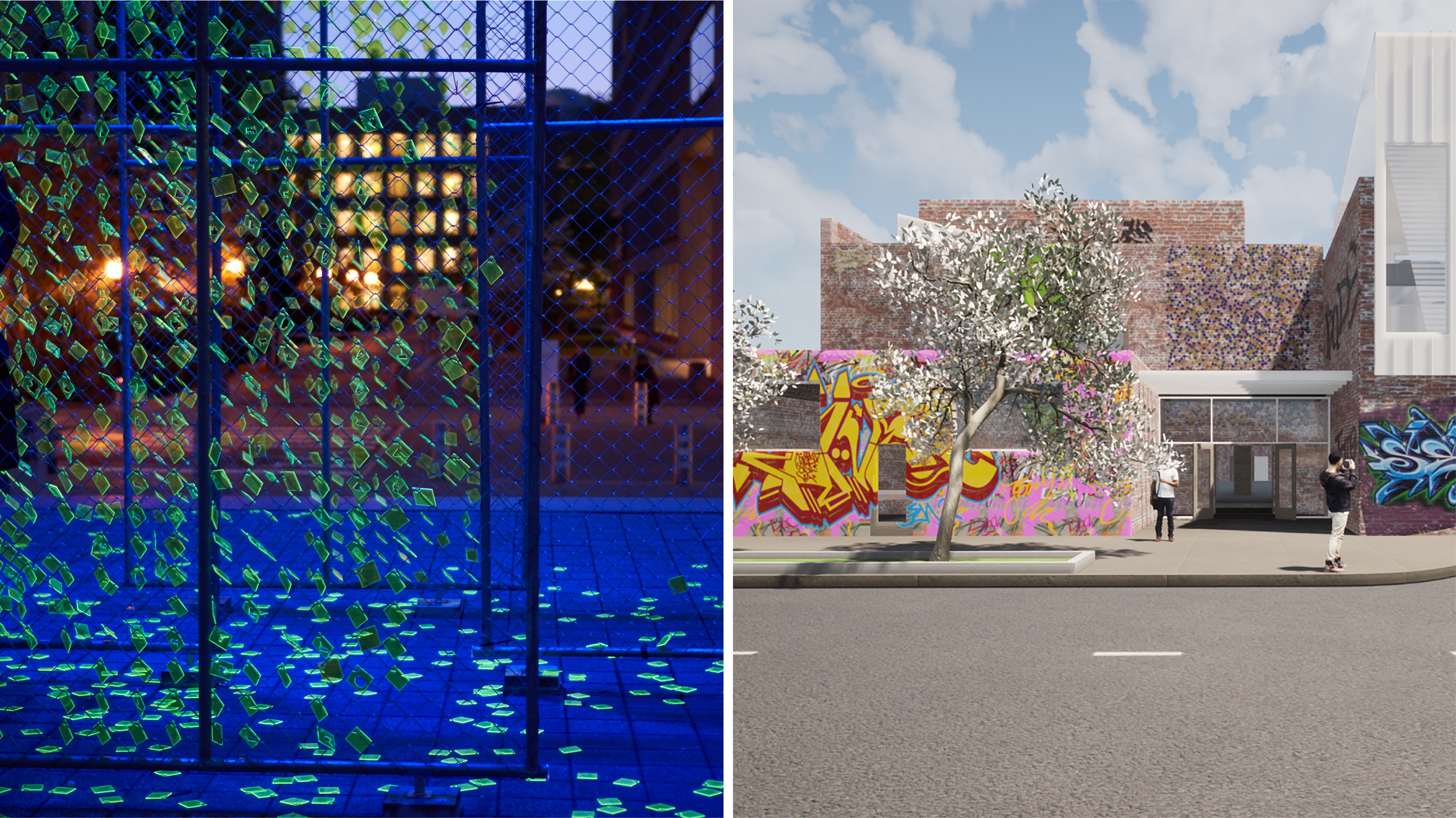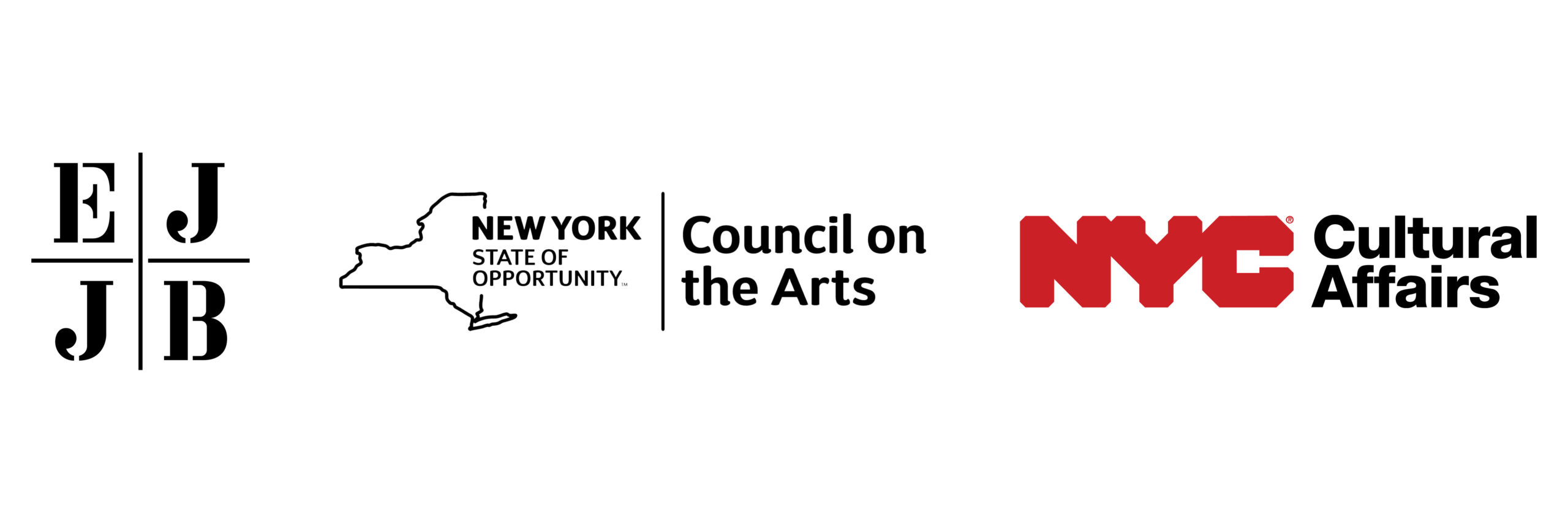Azra Akšamija and sekou cooke STUDIO
Join us for the last night of the 2022 Emerging Voices series.
March 31, 2022
6:30 p.m.

Left: MIT Future Heritage Lab | Memory Matrix, Cambridge, MA, 2016. Image credit: Dietmar Offenhuber. Right: sekou cooke STUDIO | Syracuse Hip-Hop Headquarters (SHHHQ), Syracuse, NY, in progress. Image courtesy sekou cooke STUDIO
The Architectural League’s annual Emerging Voices program spotlights North American architects, landscape architects, and urban designers who have significant bodies of realized work and the potential to influence their field.
Azra Akšamija is the founding director of MIT Future Heritage Lab, an art, education, and preservation lab based in Cambridge, Massachusetts. Akšamija’s work explores “[the] destruction of cultural infrastructures within the context of conflict, migration, and forced displacement,” according to her website. Through textiles, photography, design, animation, and writing, she develops “resistant infrastructures” that aim to challenge social incongruities and improve the lives of communities under threat.
sekou cooke STUDIO is an architecture and urban design practice founded by Sekou Cooke in 2008. In its own words, the studio is “centered on the exploration of Hip-Hop Architecture, an approach to contemporary design that embraces hip-hop culture and applies its shape, structure, and ideologies to the built environment.” The studio’s work includes public, nonprofit, and residential projects, as well as temporary installations and speculative designs.
The presentations will be followed by a conversation with Ersela Kripa. Kripa is a founding partner of AGENCY, the director of the Texas Tech College of Architecture in El Paso, and co-director of Project for Operative Spatial Technologies. She was a member of the 2022 Emerging Voices jury.
Support
Emerging Voices is generously supported by Elise Jaffe + Jeffrey Brown. The Emerging Voices program is also supported by the Next Generation Fund of The Architectural League. Architectural League programs are additionally supported, in part, by public funds from the New York City Department of Cultural Affairs in partnership with the City Council, and by the New York State Council on the Arts with the support of the Office of the Governor and the New York State Legislature.

